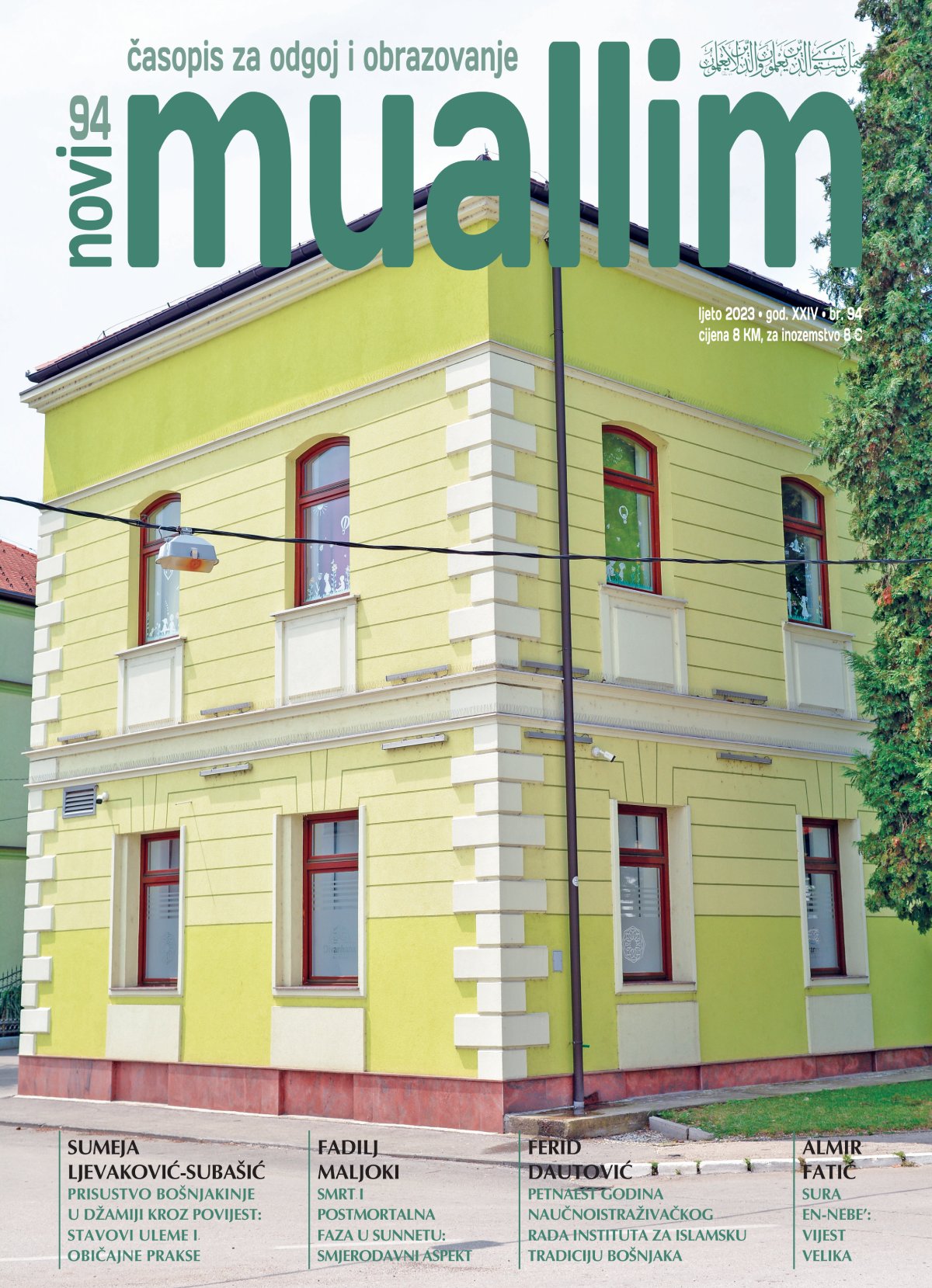Smrt i postmortalna faza u sunnetu: Smjerodavni aspekt
DOI:
https://doi.org/10.26340/muallim.v24i94.2020Ključne riječi:
hadis, sunnet, smrt, postmortalna faza, smjerodavni aspektSažetak
UDK: 28-42-28
Ovaj rad se bavi smjerodavnim aspektom Poslanikove zaostavštine koji se tiče smrti i postmortalne faze čovjekovog života. Rad je podijeljen na dva poglavlja. U prvom poglavlju navedene su smjernice Poslanika, a.s., u odnosu na vlastitu smrt. U ove smjernice spadaju: priprema za smrt i stalna svijest o njoj; lijepo mišljenje o Allahu prije smrti; nepriželjkivanje smrti, strpljivost u teškim situacijama i zabrana samoubistva; intenziviranje činjenja dobrih djela prije smrti, te ograničeno raspolaganje imovinom pred smrt/u smrtnoj bolesti i podmirivanje materijalnih obaveza. U drugom poglavlju analizirane su smjernice Poslanika, a.s., koje se odnose na smrt drugoga. U ovom poglavlju tretirane su sljedeće tematske cjeline: posjeta bolesnom čovjeku i smjernice koje su za istu vezane; smjernice vezane za postupanje prema čovjeku dok je na samrti i neposredno nakon smrti; oglašavanje smrti umrlog; kako prihvatiti smrt bliske osobe; obaveze prema porodici i bliskim osobama umrlog; kupanje umrlog, klanjanje dženaze i ukop; poštovanje dostojanstva umrlog čovjeka; smjernice vezane za izgled mezara, veličanje umrlih i neislamske običaje, te ostale obaveze prema umrlim osobama.
Downloads
Objavljeno
How to Cite
Broj časopisa
Rubrika
License

This work is licensed under a Creative Commons Attribution 4.0 International License.
Naknada:
a. Časopis ne naplaćuje naknadu za obradu članaka (APC) i naknadu za podnošenje članaka.
Autori koji objavljuju u ovom časopisu pristaju na sljedeće uvijete:
- Autori zadržavaju autorska prava i pružaju časopisu pravo prvog objavljivanja, pri čemu će rad jednu godinu po objavljivanju biti podložan licenci Creative Commons imenovanje koja omogućuje drugima da dijele rad uz uvijet navođenja autorstva i izvornog objavljivanja u ovom časopisu.
- Autori mogu izraditi zasebne, ugovorne aranžmane za ne-ekskluzivnu distribuciju rada objavljenog u časopisu (npr. postavljanje u institucionalni repozitorij ili objavljivanje u knjizi), uz navođenje da je rad izvorno objavljen u ovom časopisu.


